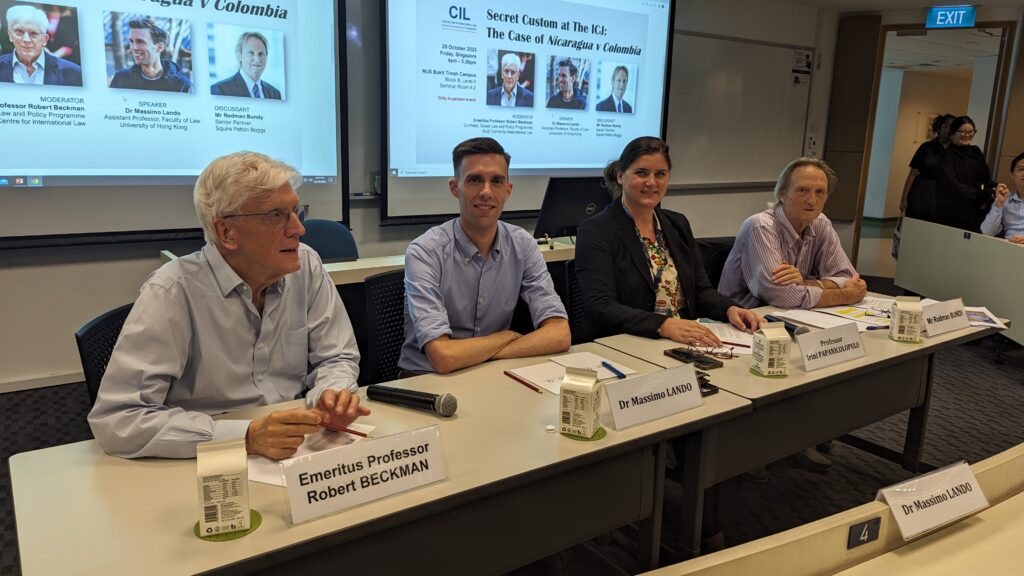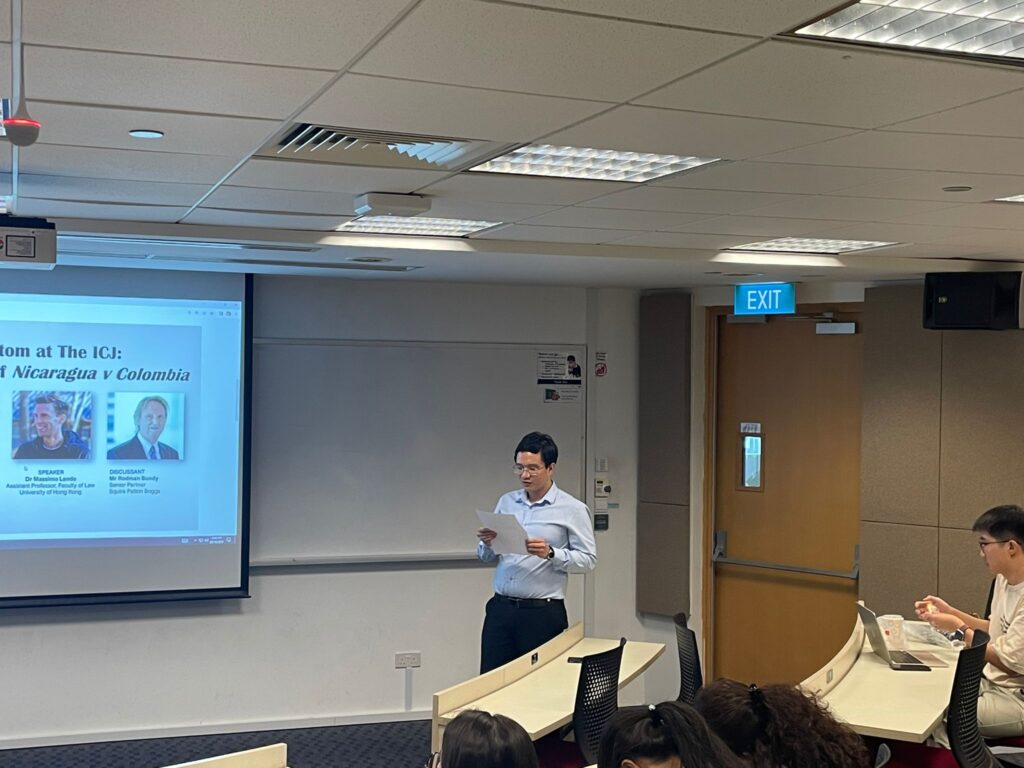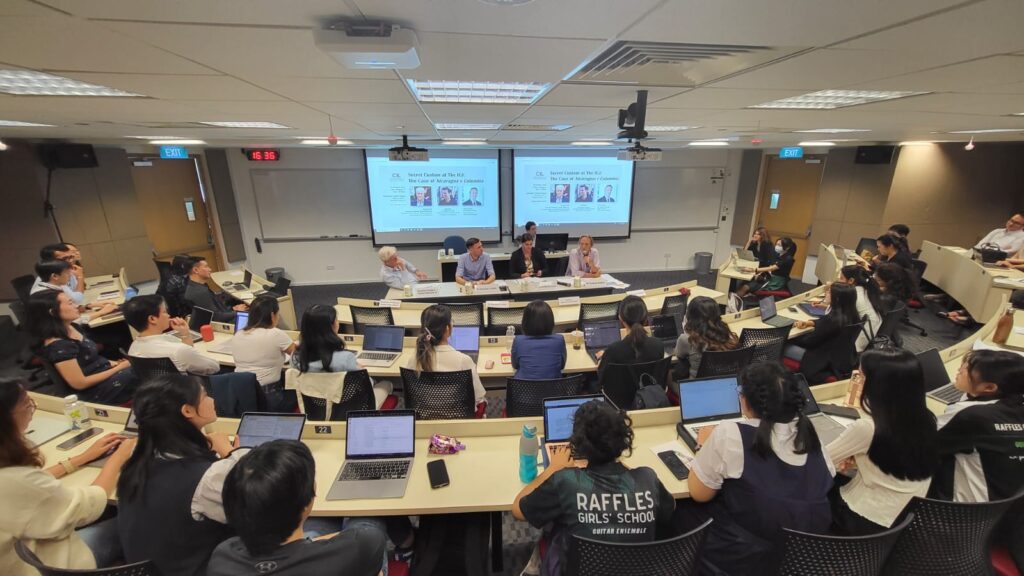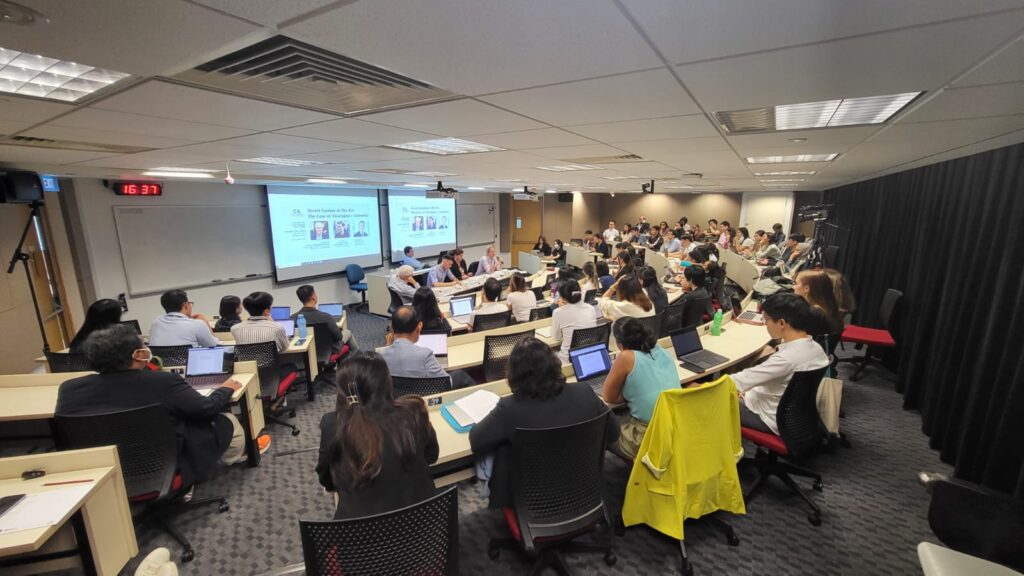Venue
Start
End
Time
On 20 October 2023, the Ocean Law and Policy team of the Centre for International Law (OLP-CIL) organized a seminar titled Secret Custom at the ICJ: The Case of Nicaragua v Colombia. The Seminar was an in-person event held at Block B, Bukit Timah Campus, NUS. The Seminar was attended by academics, officers from Singapore Government agencies, practising lawyers and students.
The main presentation was made by Dr. Massimo Lando, Assistant Professor at the Faculty of Law of the University of Hong Kong, followed by comments from Mr Rodman Bundy, Senior Partner at Squire Patton Boggs and Professor Irini Papanicolopulu, British Academy Global Professor of International Law at SOAS, University of London. Emeritus Professor Robert Beckman, Co-head of the OLP-CIL, was the moderator of the panel. The floor was then opened for comments and questions from the audience.
The discussion at the Seminar focused on the reasoning of the ICJ in its judgment of 13 July 2023 in the Nicaragua v Colombia delimitation case, where the Court ruled that, under customary international law, Nicaragua’s entitlement to a continental shelf beyond 200 nautical miles could not extend into Colombia’s Exclusive Economic Zone (EEZ) and continental shelf within 200 nm from its baselines. Specifically, there was a lively debate on whether the ICJ’s reasoning, in this case, resonated with the requirements of state practice and opinio juris in identifying customary international law. Dissenting and separate opinions of individual judges were also addressed and discussed.
Pre-Event Information
INTRODUCTION
On 20 October 2023, the Ocean Law and Policy team of the Centre for International Law (OLP-CIL) will be organizing a seminar on Secret Custom at the ICJ: The Case of Nicaragua v Colombia.
Moderator: Emeritus Professor Robert Beckman, Co-head of the OLP-CIL
Speaker: Dr Massimo Lando, Assistant Professor at the Faculty of Law of the University of Hong Kong
Discussant: Mr Rodman Bundy, Senior Partner, Squire Patton Boggs
ABSTRACT BY THE SPEAKER
How the International Court of Justice (ICJ) identifies customary international law is shaped by its deliberation process. However, ICJ deliberations are secret: only judges and legal officers have access to them. In my research on custom identification, I have conducted an empirical study among ICJ legal officers to bring to light how the dynamics of the ICJ’s secret deliberation process influence the identification of customary international law. The study shows that the ICJ’s collegial working methods drive judges to agree on a single text for judgments and advisory opinions. This drive results in judgments and advisory opinions recording custom identification as non-inductive reasoning, meaning reasoning not based on evidence of State practice and opinio juris. The judgment of 13 July 2023 in the Nicaragua v Colombia delimitation case exemplifies how deliberations impact custom identification. The ICJ identified whether, under customary international law, a State’s entitlement to a continental shelf beyond 200 nautical miles could extend into another State’s Exclusive Economic Zone. The ICJ based its dubious reasoning on shaky evidence of State practice and opinio juris. The dissents appended by some judges suggest that the approach to custom identification caused disagreement within the ICJ. This disagreement and the need for judges all to live with one text for the final judgment resulted in recording custom identification in a single, messy paragraph. Nicaragua v Colombia shows how unrealistic it is to expect a collegial body like the ICJ to identify customary international law based on evidence of State practice and opinio juris.





